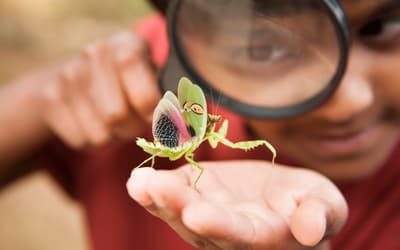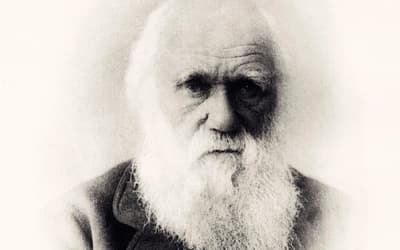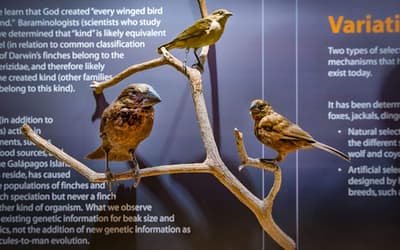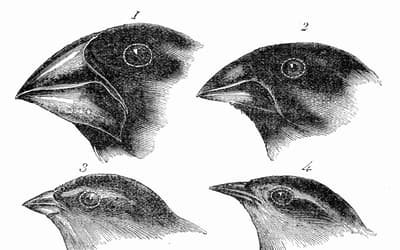The views expressed in this paper are those of the writer(s) and are not necessarily those of the ARJ Editor or Answers in Genesis.
Abstract
Previously, I wrote a paper exposing some of the numerous scientific, logical, theological, and factual errors in the writings of Randy Guliuzza. Jean Lightner has commented on my paper, claiming that Guliuzza no longer denies natural selection, which is merely one of the errors I had pointed out previously. However, my paper was criticizing what Guliuzza has publicly written in which he indeed denies the reality of natural selection: a claim that he has never publicly retracted. Lightner also speculates on the motivations of those who deny Guliuzza’s claims. Such speculations are logically irrelevant to Guliuzza’s many errors of reasoning and fact. So, I suggest that Lightner’s comments strengthen the claims of my original paper.
Introduction
I appreciate Dr. Lightner’s response, and the cordiality with which she presented it. Such constructive dialog can be helpful in clarification. Lightner actually seems to agree with one of my main criticisms of Guliuzza—that his claim (that natural selection is not real) is a false claim. And she did not address in any detail all the other errors in Guliuzza’s writings—his inability or unwillingness to define essential terms, his tendency to state speculations as if they were facts, his failure to follow the scientific method, logical fallacies, scientific errors, and theological errors. Therefore, I submit that Lightner’s comments actually strengthen my case, as I will show below. Let us examine Lightner’s comments and examine points of agreement and disagreement. I hope that this will be helpful.
The Reality of Natural Selection
Lightner writes, “It was quite apparent he [Lisle] was not concerned with dubious claims on this topic in general, but only those made by one particular fellow creationist, Randy Guliuzza.”
My paper focused on Guliuzza’s misunderstandings for two reasons. First, technical papers are, by their very nature, limited in scope; they are not meant to be a textbook covering every aspect of an issue. Due to the tremendous volume of mistakes in reasoning and errors of fact that Guliuzza has made in his writings, this paper was long enough merely summarizing his most serious errors. Furthermore, I only covered those he has put in print to say nothing of his lectures. Second, I have already written on the fact that evolutionists misuse natural selection (in claiming that it can achieve evolution in the particles-to-people sense); I expect them to make such unsupportable sweeping claims. And I did mention this in my paper. However, when creationists misunderstand natural selection and publicly promote such misunderstanding, it is damaging to the creation movement. As far as I know, Guliuzza is the only creationist who repeatedly misrepresents/misunderstands natural selection in his writings and public lectures. Hence, the article focused primarily on his errors.
Lightner states, “It seems the most controversial statement Guliuzza has made about natural selection is that it does not exist. Lisle brings this up repeatedly. Yet in the last year and a half I have twice heard Guliuzza clearly state, ‘I am not saying that natural selection does not exist, but just that it is not a major player.’. . . very clearly Guliuzza’s arguments have changed and dramatically improved.”
Guliuzza’s primary claim for many years has been that natural selection isn’t real, to the point of calling it idolatry. I have documented this (Lisle 2018a), and that has been his central platform. If he now claims that it is real—the exact opposite of his previous central claim—then this represents a radical departure (indeed, a complete reversal) from his previous position. If indeed this is so, then why has there been no public retraction? Why has Guliuzza failed to admit publicly that he was wrong in his all his previous articles in which he claimed that natural selection does not exist?
Indeed, Guliuzza’s numerous articles claiming that natural selection isn’t real are still posted and accessible on the ICR website, and therefore continue to misinform. What of the tens of thousands of people that Guliuzza has misled through his lectures and articles over the years? Will they ever be informed that Guliuzza no longer believes the central claim that he has asserted over and over?
Moreover, as I pointed out in my paper, another serious problem with Guliuzza’s articles is his tendency to state untested conjectures as if they were established fact. If his new claim is that “natural selection is not a major player,” what experiments has he performed to demonstrate this? What were his materials and methods? In what peer-reviewed journal did he publish his experimental procedure and results so that others may check them? Basic biblical ethics demand accountability for scientific claims.
The Definition of Natural Selection
Lightner states, “Lisle spends some time using dictionary definitions to imply that natural selection is well-defined and generally understood by most evolutionists. Since he is an outsider to this field, I see how he can reach this conclusion. However, there has long been a problem with evolutionists using the term inconsistently. . . . This is consistent with what I have read in the scientific literature, where authors state that a trait arose by natural selection.”
Here, Lightner seems to have made the same mistake as Guliuzza in confusing what natural selection is with what natural selection is claimed to accomplish. These are quite separate issues and should not be conflated. I addressed this in my original paper (Lisle 2018a). Evolutionists believe that natural selection can do lots of things that it cannot really do, such as giving rise to a trait or convert one kind of organism to another over time. But Lightner presented no evidence that they have any disagreement on the definition. Namely, natural selection refers to the success of organisms with traits suited for their environment, and the death of organisms with traits unsuitable to their environment. If Lightner believes that evolutionists use a different definition, then she should have provided some evidence of this. None was presented.
Those people who have studied logic will recognize Lighter’s comment about “an outsider to this field” as an ad hominem fallacy. This is when an argument is directed against a person (in this case, his or her qualifications) rather than his or her claim. I have observed this sort of tactic repeatedly—especially when Guliuzza responds to his opponents. Such comments may stir emotion, but they do little to advance the discussion, for several reasons. First, when a criticism is levied, the level of academic training of the critic is irrelevant to the argument of the critic. If a student with no training in mathematics made a good argument that “2 + 2 = 4”, then the argument is good regardless of any training or lack thereof on the topic.
Second, my main criticisms of Guliuzza are in the fields of logic and the philosophy of science— fields in which I have extensive familiarity and a significant publication record and in which Guliuzza does not. Therefore, Lightner’s ad hominem fallacy is ultimately self-defeating. Namely, Guliuzza is attempting to advance a biological hypothesis. Yet, he lacks academic training appropriate to this pursuit. Rigorous preparation for biological research normally comes via the pursuit of a PhD degree— which Guliuzza does not possess. Guliuzza’s degree is in medicine, not research. In contrast, some of Guliuzza’s main critics (Drs. Jeanson, Purdom, Sarfati, etc.) are scientists with extensive research training (PhDs) and publication records.
Lightner states, “Further, plant physiologist and former evolutionist David Catchpoole of Creation Ministries International has pointed out that it was eye-opening to him when someone pointed out that natural selection cannot create anything new; it can only eliminate some of the variation that already exists (referenced in Lightner 2015).”
This again supports my conviction that Lightner is confusing the definition of natural selection with what natural selection is said (by evolutionists) to accomplish. It is indeed the case that natural selection cannot create anything new, contrary to what some evolutionists claim. However, this doesn’t mean that they are necessarily using a different definition of natural selection.
I also must remind the reader of something I presented in my original paper. Namely, evolutionists sometimes use synecdoche; they use the phrase “natural selection” as a shorthand substitute for “natural selection and mutations.” Mutations can indeed result in new traits by the removal of genetic information.
Lightner states, “Thus, I disagree with Lisle’s implication that most evolutionists have a clear understanding of natural selection, using it only as it is defined in the dictionary.”
This is the fallacy of irrelevant thesis. The fact that evolutionists claim that natural selection can do things that it really cannot do, does not remotely establish that there is any disagreement on how the term is defined. As explained in my paper, secular astronomers believe that gravity is what formed the planets—I disagree with what they claim gravity can do. But we both use the same definition of gravity. Lightner hasn’t presented any actual evidence that evolutionists use a different definition. And even if a few of them did, it would not excuse Guliuzza from making the same error. Natural selection is perfectly well-defined. You can confirm this by consulting any dictionary or biology textbook.
Lightner states, “Lisle makes the erroneous claim that the account of the Flood provides an example of natural selection. His reasoning is that the fish had traits enabling them to survive in the water, and so they survived outside the Ark. Land animals did not have traits that allowed them to survive in the water, and perished outside the Ark. What he has missed in his superficial understanding of natural selection is that it applies to a population. It is never said to be the cause of why one species persists in an environment, while another completely unrelated species perishes.”
This is a strange criticism. Lightner takes issue with natural selection applying to species, insisting instead that it must apply to populations. In fact, species are defined as populations (Coyne and Orr 2004).
Furthermore, Lightner again seems to confuse two different issues. When natural selection is used in the context of adaptation (when it is invoked to explain the shift in allele frequency in a population of organisms of the same kind), then its scope is obviously limited to that population of related organisms. However, natural selection is a true principle beyond the issue of adaptation of a population. There is nothing in the definition of natural selection that restricts its usage to same-species or “related species” populations as Lightner seems to think. In many cases, we don’t know if certain species are related (part of the same created kind) and evolutionists believe all species are related anyway.
In fact, the Merriam-Webster dictionary defines natural selection as “a natural process that results in the survival and reproductive success of individuals or groups best adjusted to their environment and that leads to the perpetuation of genetic qualities best suited to that particular environment.” Note that there is no restriction on the varieties of organisms under investigation. I am free to consider all organisms on earth, and I note that those individuals or groups with traits unsuitable to a global flood perished during the global flood, while those with traits suitable to the flood survived. This fits the definition of natural selection verbatim. Students of logic will recognize Lightner’s error here as the “no true Scotsman fallacy”—the mistake of protecting a claim from counterargument by redefining a term in a way that is not found in a dictionary (in this case, restricting natural selection to closely related organisms when the dictionary does not).
Lightner states, “It is less clear, given the definitions Lisle presents, why he claims that the parable of the sower (Luke 8:5–8) is an example of natural selection. What traits did some seeds have, that others did not, that enabled them to survive being trampled on the path? None. What special traits did some seeds have, that others did not, that enabled them to be productive among the thorns? Again, none are implied. Thus, while at the end of his article Lisle claims that natural selection is an observable phenomenon, in his paper he does not present any valid evidence of this.”
I am happy to clarify. Traits are only part of the definition of natural selection—the environment is also involved. Recall the definition of natural selection: “a natural process that results in the survival and reproductive success of individuals or groups best adjusted to their environment and that leads to the perpetuation of genetic qualities best suited to that particular environment” [emphasis added]. Traits that provide a survival advantage in one environment may not in a different environment. We find in the parable of the sower that the plants that survived and multiplied were those that were best suited to their environment. This matches perfectly the dictionary definition of natural selection. Those plants that had traits unsuitable to their environment died. So, in this instance, it is not the traits that are the variable, but rather the environmental conditions. Both are relevant to natural selection. So those plants not well-suited to living among thorns died, although the thorns themselves had traits suitable for such an environment and therefore survived. This is natural selection by definition.
Lightner states, “While it may be unsurprising that a non-specialist can easily misunderstand natural selection, I would expect that, given where it was published, his article should have been reviewed by two scientists who do understand natural selection.”
In fact, my article was peer-reviewed approvingly by several PhD biologists who understand natural selection. Conversely, most of Guliuzza’s articles on this topic were never peer-reviewed at all. Since Guliuzza does not have a PhD in biology or any other field, since pursuit of an MD does not typically involve rigorous training in reasoning from biological data or design of experiments, and since PhD creation biologists have refuted his claims, by Lightner’s logic these facts should raise serious concerns.
Lightner states, “Given that Lisle’s supposed examples of natural selection are profoundly flawed and invalid, . . .”
Unfortunately, Lightner has provided no evidence to support such a claim. In fact, the examples provided match the definition of natural selection as found in any dictionary or biology textbook. Conversely, I have provided evidence that Guliuzza’s understanding of natural selection and adaptation is not accurate, and that he has made numerous mistakes in logic, science, and theology.
Lightner states, “. . . it appears that either his reviewers do not really understand natural selection very well, or he has disregarded their feedback.”
Students of logic will recognize this claim as a bifurcation fallacy. Namely, Lightner provides us with two options, neither of which is correct. It doesn’t seem to occur to her that creationists with a PhD in biology do in fact understand natural selection and because they understand it, they rightly disagree with Guliuzza. See Jeanson (2013), and Purdom and Jeanson (2016).
Lamarckism
Lightner states, “Lisle claims that Guliuzza’s views are Lamarkian. In reality they more closely resemble those of eminent field biologists such as Erich Wasmann (1859–1931) and L. S. Berg (1876–1950).”
This is a fallacy of irrelevant thesis because whether or not Guliuzza’s views match the position of some other persons even better than Lamarck does not change or refute the fact that Guliuzza’s views are indeed Lamarckian. Lamarck believed that organisms would gradually adjust their own anatomy as needed, and then pass on those characteristics to the next generation with no extinction, and thereby continually track their environment. This is precisely what Guliuzza teaches. He states, “Creationists theorize that organisms’ innate systems enable rapid rates of trait diversification to explain how they continuously fill environmental niches—particularly post-Creation and Flood” (Guliuzza 2017).
Lightner states, “Neither claimed that natural selection did not exist, but they clearly showed it was not a major player in explaining the variety we see in nature today.”
In that case, it would seem that Guliuzza’s teachings and publications better match Lamarck, since neither Lamark nor Guliuzza invoke natural selection at all. Recall that Guliuzza has claimed repeatedly and dogmatically in his articles and lectures that natural selection is “not really real.”
Lightner states, “Similar to Guliuzza’s arguments, he clearly puts the emphasis on the internal nature (design) of the organisms as the major factor explaining biological diversity within, what we would call today, created kinds.”
The problem here is not that this conjecture is demonstrably false. The problem is that Guliuzza tends to state his assertion as though it had been scientifically proven and for all cases. Furthermore, he uses vague and unquantifiable terminology (“true cause”) which makes such speculations untestable even in principle. He further claims that the environment is utterly irrelevant as a causal factor in adaptation—which is known to be false. Yet, as far as I know, he has not done a single experiment to test such claims. Is it ethical to publicly assert unverified and ill-defined conjectures as fact?
Lightner states, “Berg further argues that natural selection can only be the major player in the variety we see in living things today if variation is actually random, as Darwin proposed. Berg shows through a myriad of examples that variation is not random, but living things have a propensity to vary in particular ways. Thus, the major explanation for the diversity we see today is the pattern of variation expressed in the organism, not natural selection that may or may not act on this non-random variation.”
Space does not permit an in-depth discussion of the nature of the concept of randomness, the different types of random distributions, and what these concepts do or do not imply. But such is irrelevant to my paper. Recall, Guliuzza has repeatedly claimed that natural selection does not exist—which is demonstrably false. But let’s engage in careful reasoning and scientific experimentation rather than pendulum swings. No one is claiming that natural selection is the only factor in adaptation. It isn’t. In fact, I and a PhD biologist have published nearly the opposite conclusion—that genetic drift is probably the major player in speciation (Jeanson and Lisle 2016). And there are PhD creation biologists who are well-read on the topic and follow the scientific method in investigating these issues. I encourage Guliuzza and others to consult with these experts, heed their advice, and learn from their research, rather than publicly proclaiming unsubstantiated opinions as if they were fact.
A Major Player in Adaptation?
Lightner’s next section is entitled “Where did we get the idea that natural selection is a major player?” But this begs the question. Where did I make the claim that natural selection is a “major player” in adaptation? As far as I know, I have not taken any public stand on the precise quantitative degree of natural selection. I am merely pointing out that natural selection is real, that it is an analytic truth (it’s true by definition that survivors survive), that it can lead (and has led) to adaptation in some situations. Furthermore, I have shown that this is observable and biblical, and therefore Guliuzza should not be denying it.
Lightner states, “Even prior to the publication of Lisle’s paper, I have noticed that those in the creation community who feel a need to publicly distance themselves from Guliuzza’s views are those who remain most heavily influenced by the Neo-Darwinian, philosophical, textbook version of natural selection that is promoted on the lay level.”
Students of logic will of course recognize this as the circumstantial ad hominem fallacy. Rather than dealing with the claims in question, this fallacy occurs when arguing against the person, accusing him or her of bias, etc. Though such a fallacy may influence emotion, it has no rational merit. I could equally well reply that those who most adamantly reject Guliuzza’s rhetoric are scientists with a PhD in biology (such as Dr. Jeanson, Dr. Purdom, etc.), something that Guliuzza is not. Could it be that they reject his opinions because they recognize the difference between rhetoric and science, between verbiage and something that has been verified experimentally? I could point out that Guliuzza’s followers tend to not have a PhD in hard science and have little to no education in logic, which may be why they fail to recognize the numerous fallacies in Guliuzza’s articles and lectures. This might stir emotion, and may even be true. But it is not germane to the central issue. So, let us stick to the facts rather than speculate on psychology. The fact is that Guliuzza has repeatedly claimed that natural selection is not real; the fact is that this claim is demonstrably false. The fact is that Guliuzza has made many assertions that have no experimental support, and his reasoning is full of logical fallacies. Yet Guliuzza continues to promote these errors publicly and unrepentantly.
Natural Selection as an Analytic Truth
Lightner states, “Yet in their haste to point out Guliuzza’s errors, they make dubious claims themselves.”
I appreciate Lightner’s confirmation of Guliuzza’s errors. She apparently agrees with me that natural selection is real, and therefore that Guliuzza was wrong to claim that it isn’t. So, Lightner and I may not be all that far apart on the issue. It is a shame that Guliuzza has failed to respect the peer-review process or these errors might have been prevented before publication. Further I agree that we must be careful not to make errors ourselves when we point out the errors of others. However, this does not in any way subtract from the numerous errors that Guliuzza has been publicly repeating. (To claim so would be a tu quoque fallacy.)
Lightner states, “For example, one of the articles Lisle cites favorably provides a just-so story that sounds compelling from which the authors conclude that natural selection is an observable scientific fact. I assume Lisle would immediately recognize this as logically absurd, since contrived stories do not qualify as observational data.”
There are several problems here. First, Lightner does not specify which article she is criticizing. I had to discover her referent (Purdom and Jeanson 2016) via personal correspondence. Second, rather than write a separate article outlining her concerns, she airs her complaint here (“Yet even after I pointed out this error in logic to the authors, the article was reposted on the website”). Third, rereading the article in question, it seems to me that Purdom and Jeanson were offering this scenario as an illustration of natural selection rather than a proof of it. Namely, they are explaining the concept with this example. Using a hypothetical scenario is a legitimate and appropriate way to explain a concept.
Fourth, since natural selection is an analytic truth, it can be proved by a gedankenexperiment. Such thought experiments need be only hypothetical, and yet demonstrate a truth claim using logic, usually by reductio ad absurdum. This is a legitimate procedure in science, and in fact virtually the entire field of relativistic physics was discovered in such a way. (See Lisle 2018b). Purdom and Jeanson’s illustration does indeed fall into this category. It shows that natural selection must be true by definition because, statistically, whatever gazelle fails to survive is by definition less fit. Perhaps further reflection on the definition of natural selection will make this clear.
Recall that natural selection—by definition— involves the survival and reproductive success of individuals or groups best adjusted to their environment. But what do we mean by “best adjusted to their environment”? We understand intuitively that thick fur is a good trait to have in a cold environment because it aids survival; the same trait is counterproductive in a warm environment. Clearly, well-adjusted means having a combination of traits that elucidate survival in a given environment. But how do we know—for certain—if a combination of traits elucidates survival in a given environment? The only way to know for certain is to place the organism with such traits in the selected environment and see if it survives to reproduce.
So, the criterion by which we measure survival is the same criterion by which we judge an organism to be well-suited to its environment—survival. Therefore, whenever we consider a group of organisms, we find that the ones that survive are those that survive, and those that don’t survive are those that don’t survive. Natural selection is therefore an analytic truth—true by nature of the definition. Yet, it can be observed any time we see an organism survive or perish. In all cases, the survivors are the ones that have survived, and the non-survivors are the ones that perished. This is by definition natural selection. Note that what causes the traits is utterly irrelevant. In all cases, the survivors survive.
This obviously will have some role in adaptation. But I have never claimed that it is the sole criterion or even the most important one. I hope this clarifies.
Staying on Topic
Lightner states, “Further, there is a tendency to claim that a change in traits is not evolution (though, by one valid definition, it is), and instead claim that it is natural selection (which it is not, by any legitimate definition).”
This is not my claim and is therefore not relevant to my refutation of Guliuzza’s errors. On the contrary, I discussed in my paper (Lisle 2018a) cases of (physiological) adaptation that do not involve natural selection. However, when an organism less fit to an environment dies while another more fit to the environment thrives, this is indeed natural selection by any legitimate definition. And it is right to call it such. I don’t claim that it is the only mechanism at play.
Lightner states, “I submit that the reason those feeling compelled to publicly oppose Guliuzza also exhibit such egregious errors in reasoning is because they have imbibed a muddled view from evolutionists. They have not yet examined their beliefs about natural selection to find out that much of what they claim about it is inconsistent with reality.”
Students of logic will recognize this as yet another ad hominem fallacy. Lightner has not provided any evidence that critics of Guliuzza have made any errors in reasoning at all. But Guliuzza’s errors are well-documented. Rather than deal with the errors in Guliuzza’s articles, we are distracted by an irrelevant issue: a speculation on the psychological reason why some people reject Guliuzza’s errors. But Lightner presents no evidence to support her psychological conjecture.
Could it be that those who disagree with Guliuzza do so because they actually do understand how science works and understand logic? The reason I personally must distance myself from Guliuzza is because I believe he is teaching serious error, repeatedly and unrepentantly. Creationist students who repeat Guliuzza’s published claims about natural selection will be quickly refuted by anyone who knows something about science or logic. Guliuzza’s resistance to correction is not helpful to the creation movement. Evolutionists have tried to paint creationists as uninformed and scientifically illiterate; Guliuzza’s writings substantiate these claims, and make it far more difficult for those of us who do legitimate scientific research to counter the evolutionists’ mantra. Now, Lightner does not have to agree with me about the egregiousness of Guliuzza’s errors. But it would be best to focus on the claims themselves and avoid speculating on motivations.
Lightner states, “I have provided more detail on many of these problems in the above mentioned ARJ paper (Lightner 2015), which Lisle apparently did not consult.”
I read Lightner’s paper long ago, but found it entirely irrelevant to my criticisms of Guliuzza. Lightner does not deny the existence of natural selection as Guliuzza does. Indeed, in the aforementioned paper she states, “Natural selection is a valid phenomenon . . .” (Lightner 2015). I agree. have no objection to her hypothesis which was presented in a technical paper for evaluation of creation biologists where it belongs. This is entirely different from Guliuzza’s assertion that natural selection isn’t real, his fallacious reasoning for this (along the lines of Rhode Island isn’t literally an island therefore it is just a phantasm), his unwillingness to follow the scientific method to test his claims or even define terms properly, his theological errors (that God is to be blamed when organisms fail to adapt, that it is idolatry to believe in natural selection), and his presenting all of these errors to laymen as if they were established fact.
Lightner states, “Scientific evidence shows that natural selection cannot do much of what some creationists (echoing certain evolutionists) claim; it is not effective at removing most deleterious mutations, but is able to work against the long-term well-being of a population of organisms, by eliminating a portion of adaptive variation in a population, and then oscillating in direction.”
I appreciate Lightner acknowledging (contrary to Guliuzza’s central assertion) that natural selection does exist and has an effect on populations, even if not always a positive one. But again, I must advise against pendulum swings. I agree that natural selection does not weed out all deleterious mutations in a population, particularly in sexually reproducing organisms where a mutation might be carried but not expressed. But it does weed out some, and we would expect this to be particularly effective in asexual organisms. A mutation resulting in a fatal defect that arises in a bacterium is very effectively removed by natural selection.
Lightner states, “I will agree with Guliuzza when he claims natural selection (as portrayed by many creationists and evolutionists) robs glory from God.”
That may sound pious. But in reality, promoting error robs glory from God, because God is truth. And Guliuzza has been promoting error repeatedly. As I demonstrated in my paper, natural selection is the normal way that God selects which organisms survive and which do not. Therefore, to deny natural selection is to falsely imply that God is not sovereign. That is not glorifying to God. Guliuzza’s claim that credit (for success) or blame (for failure) resides with the designer implies that God has failed billions of times. After all, some organisms fail to adjust to their environment. To blame God for this is dreadfully unbiblical. I am persuaded that everything that happens is under God’s control—that God accomplishes all His good pleasure (Isaiah 46:9–10). If an organism fails to survive, this is part of God’s plan and God is to be praised, and not blamed. If God wants to use the environment to adjust His organisms, or even to destroy His organisms (Genesis 6:7), who is Guliuzza to say that He cannot do that? We honor and glorify God when we acknowledge His sovereignty over both organisms and the environment, and when we are truthful.
Lightner states, “This is because natural selection is not what is really going on.”
Evidence? If an organism survives because it is well-suited to its environment, then this, by definition, is natural selection. Whether this is a major cause of a shift in allele frequency in a population is irrelevant to Guliuzza’s claim that natural selection is an illusion/phantasm/not real. This is one of my criticisms of Guliuzza; he tends to state his unsubstantiated opinions as if they have been scientifically demonstrated. But no evidence is presented. Conversely, creation scientists have provided evidence of natural selection, and have shown that it is an analytic truth. To deny an analytic truth is to give up rationality.
Lightner states, “Instead, it is a philosophical smokescreen masking the real underlying basis for adaptive (or agriculturally valuable) traits, which clearly demonstrate the inherent purposiveness that God designed within his creatures.”
This may suggest that Lightner has misunderstood what scientists mean when they use the term “natural selection.” Remember, no creation biologist (or informed evolutionist) would claim that natural selection without mutations actually produces adaptive traits. Natural selection merely refers to the removal of organisms (via death) that do not already possess traits suitable to their environment. The creationist Edward Blyth who first wrote on this topic rightly saw natural selection as an aspect of providence. Unfortunately, Guliuzza’s misconceptions on this issue seem to be spreading. This is why it is so important to expose these errors for what they are.
I appreciate Lightner bringing up these issues and her constructive criticisms. I hope that my reply has been helpful and clarifying.
References
Coyne, Jerry A., and Orr, H. Allen. 2004. Speciation. Sunderland, Massachusetts: Sinauer Associates, Inc.
Jeanson, Nathaniel T. 2013. “Does Natural Selection Exist? A Critique of Randy Guliuzza’s Claims.” Answers Research Journal 6 (August 7): 285–292. https://answersingenesis.org/natural-selection/does-natural-selection-exist/.
Jeanson, Nathaniel T., and Jason Lisle. 2016. “On the Origin of Eukaryotic Species’ Genotypic and Phenotypic Diversity: Genetic Clocks, Population Growth Curves, and Comparative Nuclear Genome Analyses Suggest Created Heterozygosity in Combination with Natural Processes as a Major Mechanism.” Answers Research Journal 9 (April 20): 81–122. https://answersingenesis.org/natural-selection/speciation/on-the-origin-of-eukaryotic-species-genotypic-and-phenotypic-diversity/.
Lightner, Jean. 2015 “Natural Selection: Assessing the Role It Plays in our World.” Answers Research Journal 8 (March 4): 111–119. https://answersingenesis.org/natural-selection/natural-selection-assessing-role-it-plays-our-world/.
Lisle, Jason. 2018a. “Refuting Dubious Claims Regarding Natural Selection.” Answers Research Journal 11 (December 5): 301–340. https://answersingenesis.org/natural-selection/refuting-dubious-claims-regarding-natural-selection/.
Lisle, J. 2018b. The Physics of Einstein: Black Holes, Time Travel, Distance Starlight, E=mc2. Aledo, Texas: Bible Science Institute.
Purdom, Georgia, and Nathaniel T. Jeanson. 2016. “Understanding Natural Selection: Clarifying the Confusion.” February 16. https://answersingenesis.org/natural-selection/understanding-natural-selection/.















